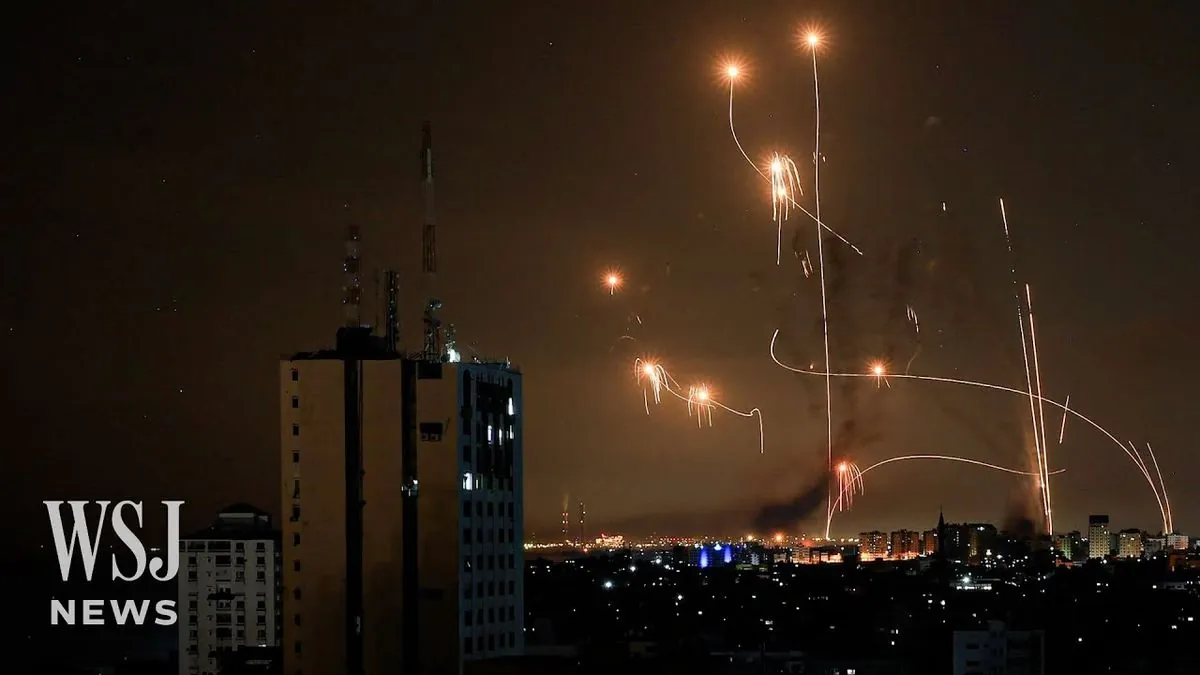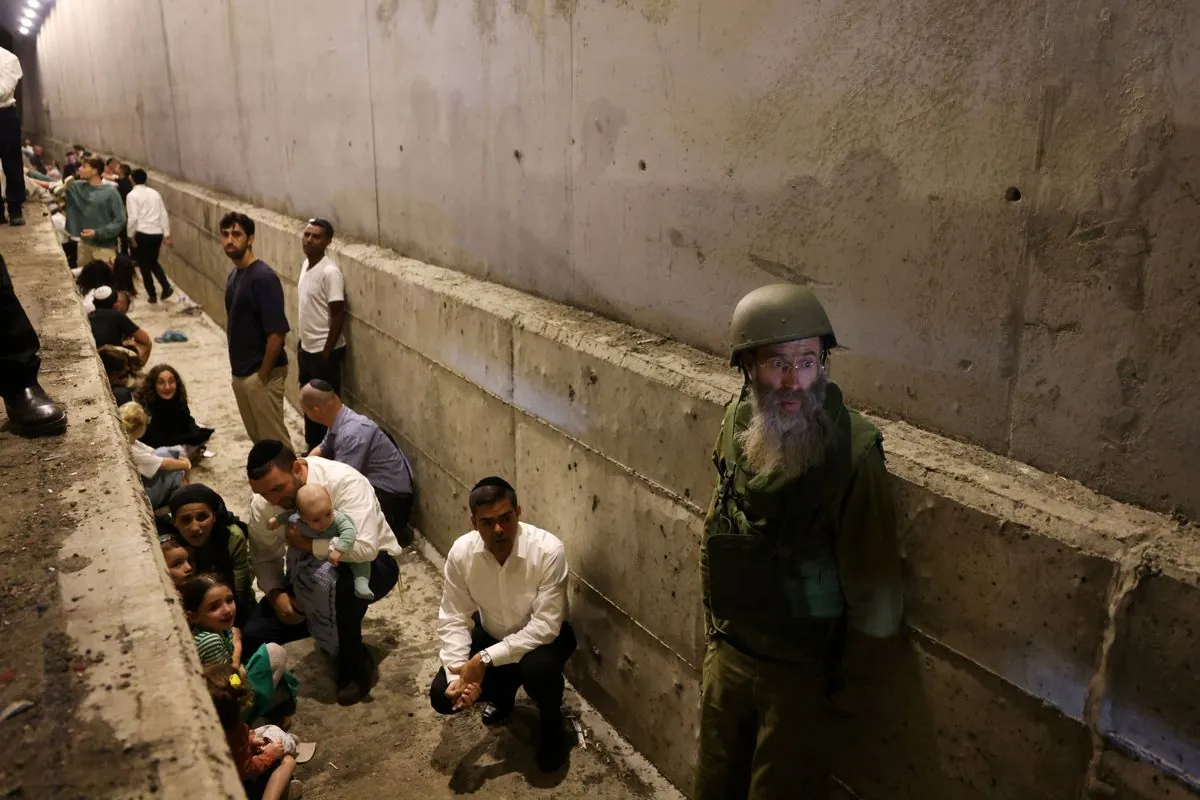Iran Launches Massive Missile Attack on Israel, Escalating Regional Tensions
Iran fired approximately 180 missiles at Israel in retaliation for recent assassinations. Israel's defense systems intercepted many projectiles, with no reported casualties within its recognized borders. The attack raises concerns about further escalation.

On September 24, 2024, Iran launched a significant missile attack against Israel, marking a substantial escalation in regional tensions. The assault, involving approximately 180 ballistic missiles, was reportedly in response to the recent assassinations of key figures in Hezbollah and Hamas.
Israel's sophisticated air defense systems, including the Iron Dome and Arrow interceptors, were activated to counter the incoming projectiles. The Iron Dome, developed in 2011, has been crucial in protecting Israeli civilians from short-range rocket attacks. Simultaneously, U.S. naval forces in the eastern Mediterranean Sea assisted in intercepting multiple missiles.
Despite the scale of the attack, no fatalities were reported within Israel's internationally recognized borders. However, one Palestinian man was reportedly killed in the West Bank, a territory that has been under Israeli control since 1967 and is claimed by Palestinians as part of their future state.

The assault prompted Israeli civilians to seek shelter, with sirens blaring in major cities like Tel Aviv and Jerusalem. Tel Aviv, Israel's most populous city and its economic hub, was among the areas targeted. The attack also impacted the Negev desert region, which covers more than half of Israel's land area.
Prime Minister Benjamin Netanyahu convened an emergency meeting of the security cabinet in a bunker, emphasizing Israel's determination to respond. He stated, "Iran made a big mistake — and it will pay for it," signaling potential retaliation.
"This attack will have consequences. We have plans, and we will operate at the place and time we decide."
The attack came as Israel announced the commencement of ground operations in southern Lebanon, where Hezbollah, a Lebanese Shiite Islamist group founded in 1982, had been launching drones and rockets into northern Israel.
Iran's Islamic Revolutionary Guard Corps (IRGC), established after the 1979 Iranian Revolution, warned Israel against retaliating. However, international experts suggest that Israel might consider targeting Iran's nuclear facilities, a program that has been a source of global concern for decades.
The international community swiftly condemned the attack. German Foreign Minister Annalena Baerbock called for an immediate halt to the assault, while UN Secretary-General António Guterres emphasized the urgent need for de-escalation and a ceasefire.
As tensions rise, the potential for further escalation looms large. The situation has drawn attention to the complex web of alliances and conflicts in the Middle East, including the ongoing issues in the Gaza Strip and the presence of U.S. military bases in Iraq.
The attack and its aftermath highlight the critical role of organizations like the International Crisis Group and think tanks such as the Carnegie Endowment for International Peace in analyzing and proposing solutions to prevent further conflict in this volatile region.


































